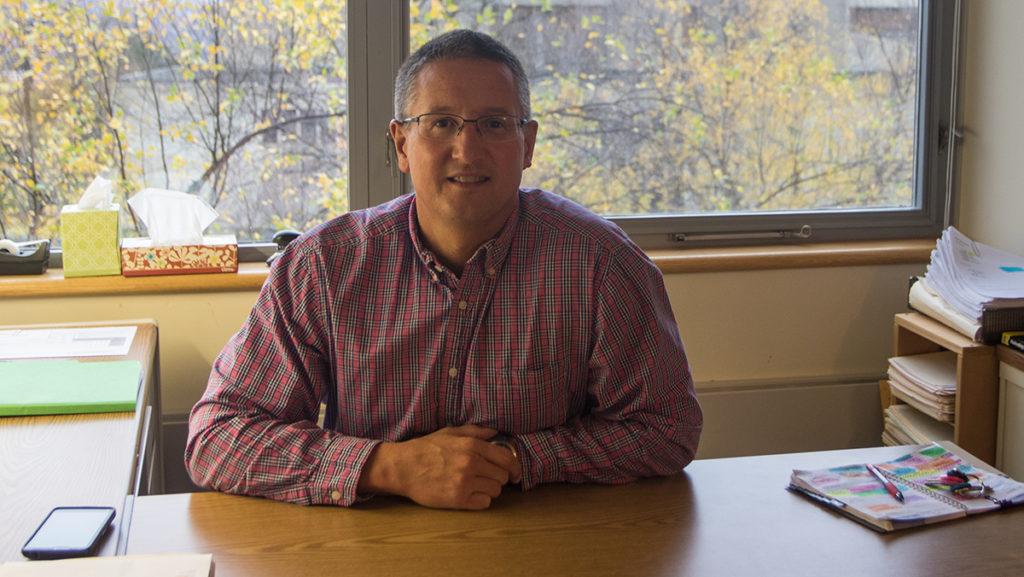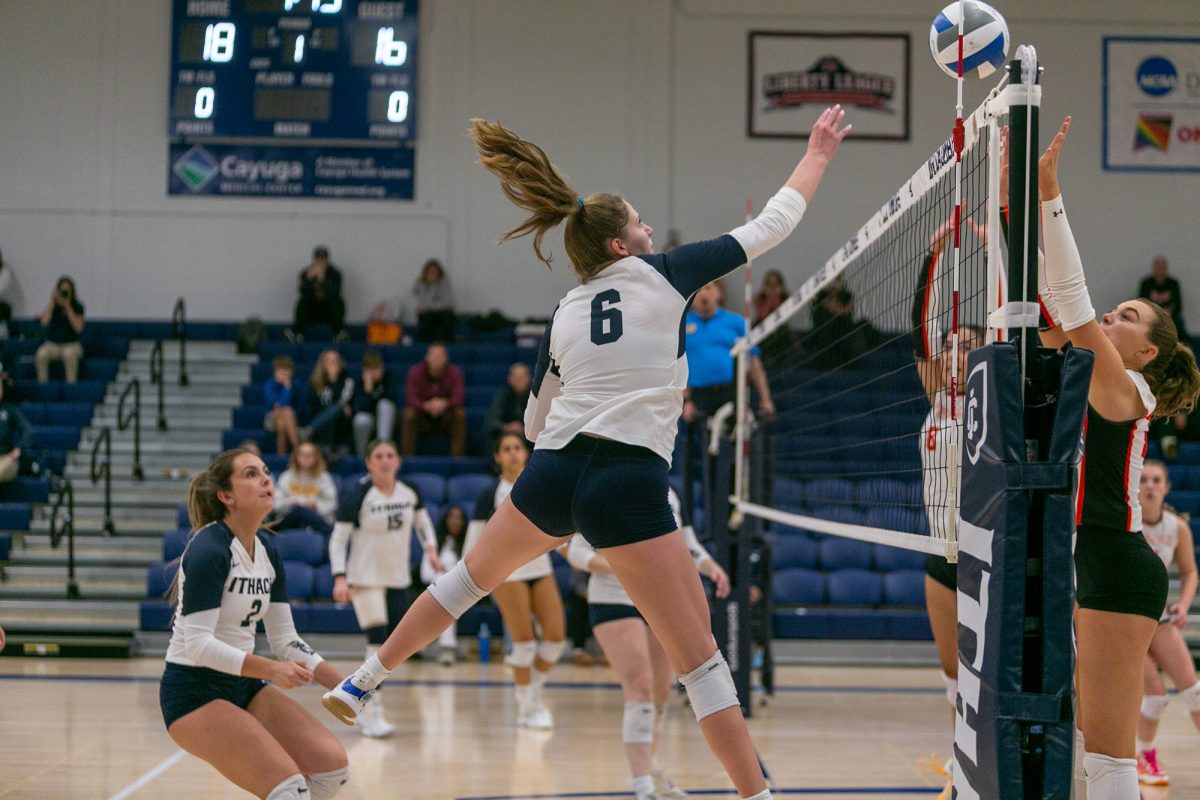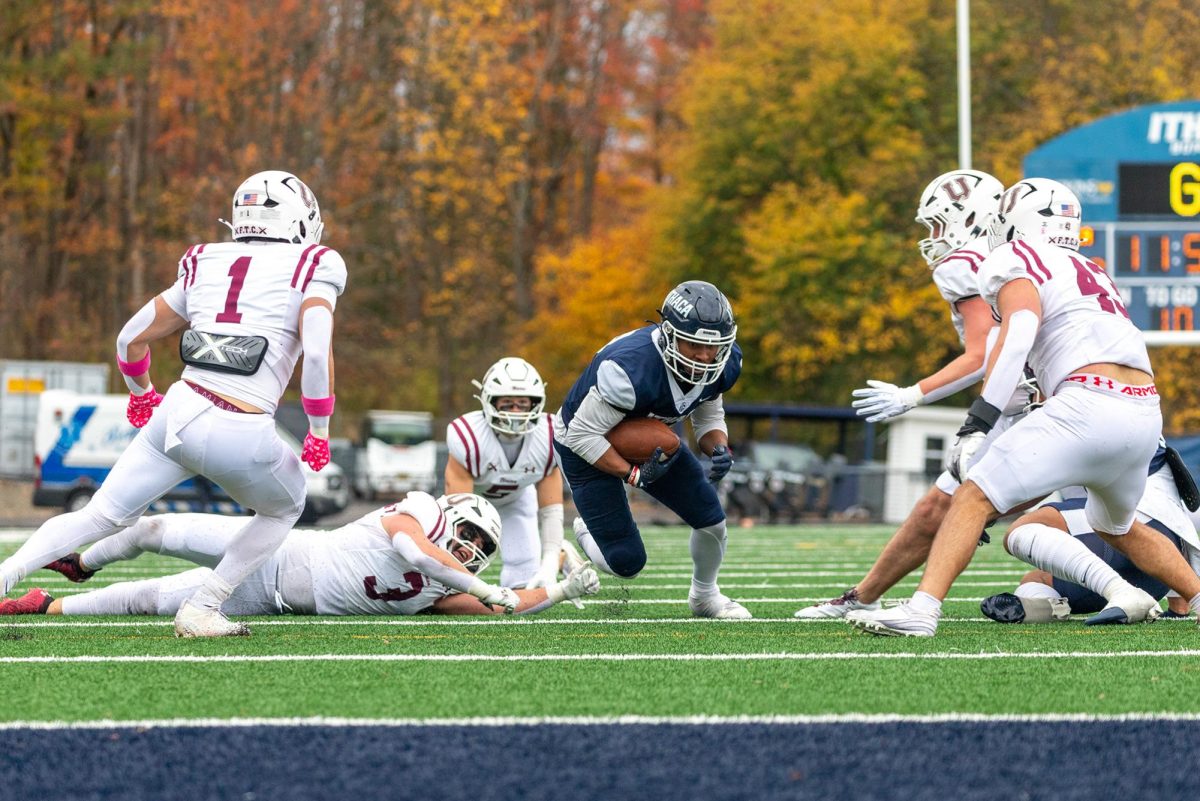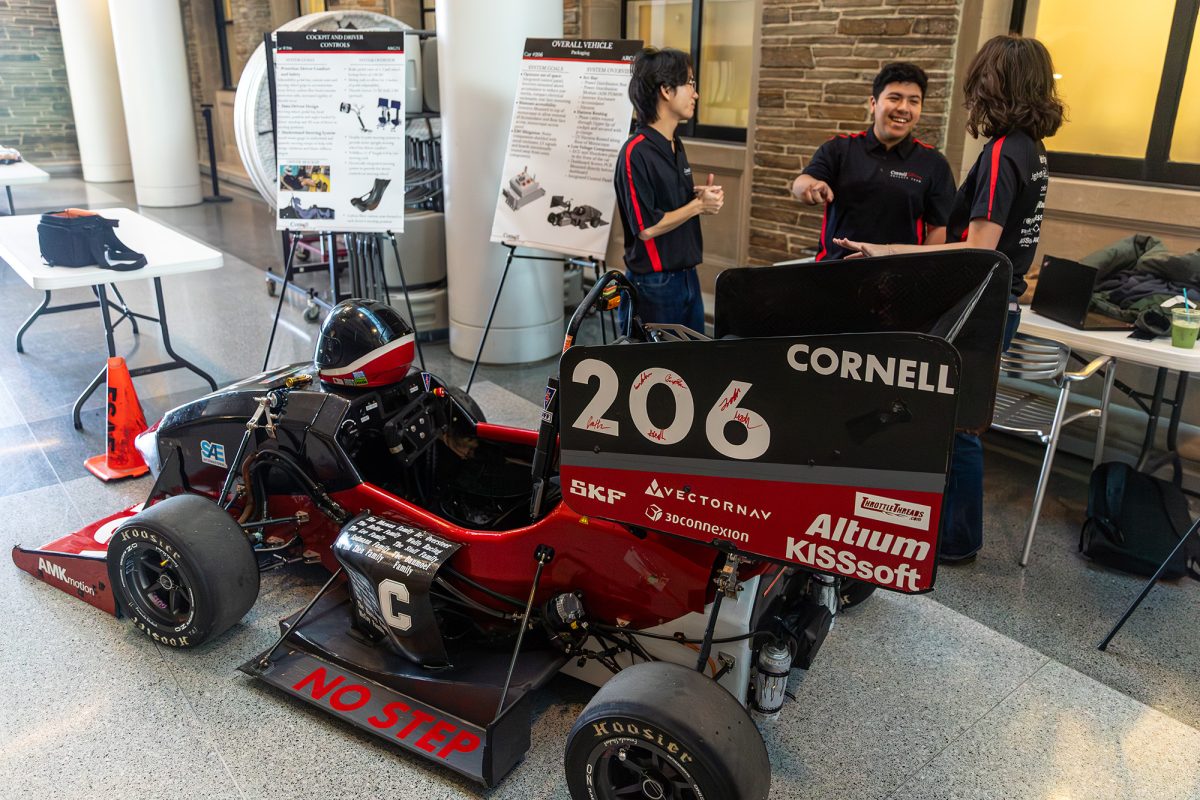Two and a half years ago, the Ithaca College Office of Intercollegiate Athletics created the Leadership Academy, a program that provides student-athletes with leadership training. Led by Greg Shelley, an associate professor in the Department of Exercise and Sport Sciences, the academy provides workshops to help athletes from all teams develop into better leaders and athletes. During the sessions, athletes learn how to improve their mindset and how to better prepare for practices and competitions.
Shelley is also the author of “Coach Up: 50 Rules for Building Committed, Confident, And Motivated Athletes And Team,” and has worked with athletic departments at the Division I, II and III levels.
Sports Editor Danielle Allentuck spoke with Shelley about the importance of sports psychologists, the impact of the Leadership Academy and his future plans for the program.
Danielle Allentuck: When did you first become interested in sports psychology?
Greg Shelley: I was a junior in college at the University of Nebraska, back in the 80s. Sports psychology was brand new, and I had just heard about sports psychology on the campus of the University of Nebraska, and they were actually flying in a sports psychologist to work with the University of Nebraska football team. Long story short, I was allowed to sit in and watch this sports psychologist work with the football team and, I’m not making this up, literally 15 minutes into the very first time I heard this person speak I said, ‘I don’t know what this guy does for sure, but that’s what I want to do,’ and that’s how I got started.
DA: Why do you think sports psychologists are important?
GS: I think the same reason a psychologist or a counselor are important — just remove the sport piece. I think all of us at some point in our lives need someone to help clarify and help understand what we are going through. That could be the struggles and stresses of academic careers or professional careers, or in the case of what I do, a sports career. So many of the people I work with are student-athletes, so I get to help someone work through the stresses of their sport, the stresses of school as a student and an athlete.
DA: What impact do you think the Leadership Academy has had on the athletes here?
GS: We do evaluations at the end of every year, and we know that it is liked, and we know that from the student-athletes and the coaches and everyone, we know that some of the concepts and what we are doing is really good. The hard part is, is that it less equates to winning all the time. We might not say it’s always beneficial. Personally, I want to empower the student-athletes to be better leaders while they are here in their sport. … I want them to be better athlete leaders, but what I really want is for them to understand leadership so that for the next 50 years of their life, they are better leaders and down the road so they are better in a corporate setting, better in a family setting, better in relationships. I really want to develop leaders for generations, not just for when you are playing lacrosse at Ithaca College. That’s important, but all of us on board with Leadership Academy have a bigger plan than just here. It starts here, but we want to send people away with leadership skills for a lifetime.
DA: Do you have any plans to change or expand on the Leadership Academy?
GS: There are some things that we still haven’t done completely. … We want to get our student-athletes involved in more community service projects. For example, can you imagine seeing 100 of our student-athletes helping to build a house in the springtime? I want to see more community service, and all of our leaders coming together outside of sport. There’s so many opportunities, and we haven’t even tapped into those yet and I’m really excited.
DA: As a sports psychologist, what advice do you give to struggling athletes?
GS: One thing that I know students in my classes have heard, that I know students in Leadership Academy have heard it … is trying to help people control what is in their control. One of the things we always talk about is, let’s look at all of the things you are not in control of. You aren’t in control of the weather. You’re not in control of what other people think of you. You’re not in control of what an umpire or referee calls. You’re not in control of what someone is going to write about you in the paper tomorrow. You’re not in control of the outcome of the game winning and losing. But what you are in control of is your attitude, your intensity and effort, your response to a mistake. You’re in control of whether you smile or not, your body language and whether you give someone a high-five. You’re in control of your emotions, your body, what you think about. You are in control of you. So, what we try to teach people is to control their actions, and that is a phrase we use all the time in sports psychology. That sounds so easy, but it’s really hard to do.














